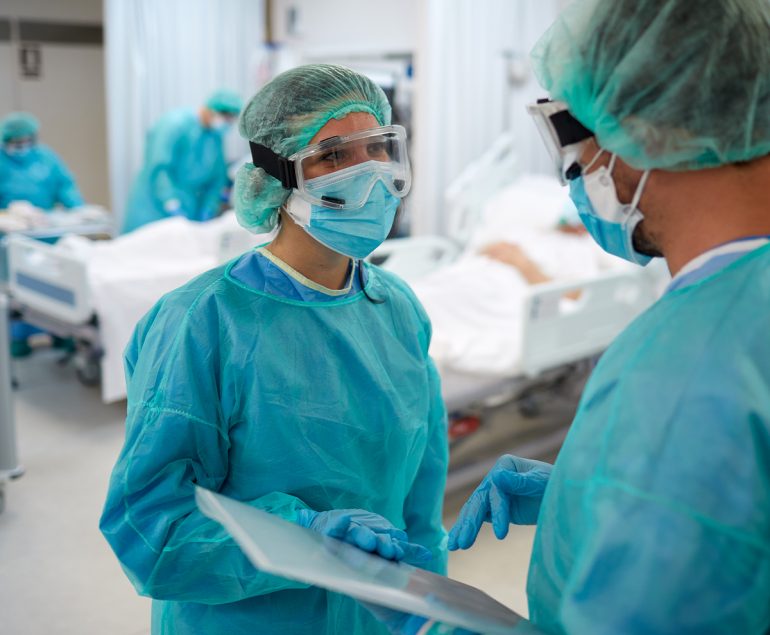Good question.
There are a lot of people that aren’t able to schedule the SARS CoV2 booster shot these days. Whether it’s because the ADHS website still isn’t working properly or because not enough appointments or doses have been reserved by the ADHS for the required 2nd dose (or a combination thereof)… a lot of people are asking themselves “how much protection did that first dose give me in case can’t find a the booster shot I need in the next few weeks or even months”?
There is good and bad news. The good news is that the first does provide some protection from infection but nothing close to the level or protection you get if you are one of the lucky people that have been able to schedule your 2nd dose.
According to the data published about Pfizer’s Phase III Clinical Trial data in the New England Journal of Medicine, people that just get the 1st shot probably have about 50% protection from being infected with the virus starting about 2 weeks after the first jab.
Here’s the exact quote from the Phase III trial write up in NEJM “… between the first dose and the second dose, 39 cases in the BNT162b2 group and 82 cases in the placebo group were observed, resulting in a vaccine efficacy of 52% (95% CI, 29.5 to 68.4) during this interval and indicating early protection by the vaccine, starting as soon as 12 days after the first dose”.
Intuitively, one would expect that a person that just had one dose might have more than 50% protection from severe COVID-19 disease. That may be the case. Here’s what the NEJM article said about that “… among 10 cases of severe Covid-19 with onset after the first dose, 9 occurred in placebo recipients and 1 in a BNT162b2 recipient”. In other words, your protection from severe disease is probably higher than the 52% protection figure but there aren’t enough data to be definitive about that.
The Pfizer Phase III clinical trial was not designed to assess the efficacy of a single-dose regimen. Nevertheless, the study concluded that “… in the interval between the first and second doses, the observed vaccine efficacy against Covid-19 was 52%. Of the 10 cases of severe Covid-19 that were observed after the first dose, only 1 occurred in the vaccine group. This finding is consistent with overall high efficacy against all Covid-19 cases. The severe case split provides preliminary evidence of vaccine mediated protection against severe disease, alleviating many of the theoretical concerns over vaccine-mediated disease enhancement.”
The bottom line is that if you aren’t able to find an appointment for a booster shot at least you know you have about 50% protection from infection and more than 50% protection from getting severe COVID disease.
Side Note: Director Christ has been suggesting in the media that it is fine to get your booster shot after the 21-day interval for Pfizer and the 28-day interval for Moderna. That may very well be true, but there are no data in the Phase III clinical trials to support the idea that you will emerge from the series with the 95% suggested in the clinical trials. I could find no data to suggest that end-point immunity is the same 95% if the interval between vaccines is extended beyond the 21 and 28-day intervals researched in the clinical trials.

